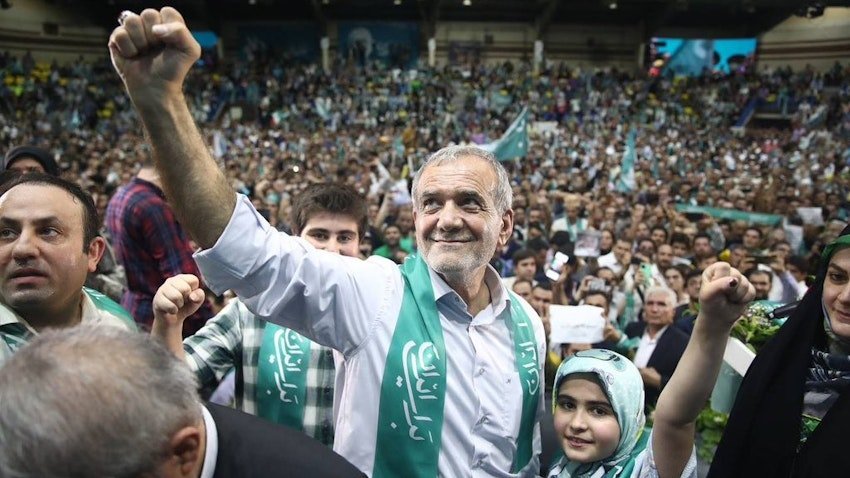Unfortunately, however, such expectations did not come to fruition. Some attempts have been made, but they are not close to ideals. There is still hope for us to create an environment in which hearts are closer to each other. Such an environment would be beneficial for the people, the country, and the regime. It can increase passion and enthusiasm for the country’s development and cooperation in enhancing the state affairs.
We have many issues in many areas. Without a doubt, life is difficult for the majority of our people. Especially for the lower classes of our society, who are significant in numbers. Fortunately, in this regard, the plans and policies of the new administration are good. I hope that various departments and organizations support them. As witnessed, relative openings have been experienced in the foreign policy and economic arenas. However, these openings have to increase. While keeping in mind the national interests of the country, determined and solid steps forward should be taken. The beautiful side of Iran and the divine face of Islam should be demonstrated to the world. Commitment to ensuring the rights and welfare of a nation is a heavy responsibility for the administration and the regime. Of course, by keeping in mind the limitations and the available resources, [people] should keep their expectations at a realistic and logical level. However, we should never lose hope for the future.
Now, I would like to address the dear youth who are the country’s main asset. If there is freedom and prosperity, it is the youth who first experience it, and if there is restriction, unfortunately, it is also the youth who first experience it. But, the youth should never lose hope. They should continue to try. The regime should prepare the environment for the free, active, and enthusiastic presence of the youth in various sectors. All entrepreneurs, laborers, and all who are active should work together to advance the affairs of the country. The esteemed administration should prepare the background for the free presence of all factions, groups, organizations, and the private sector. The administration should utilize all internal and external talents in order to improve the situation. Fortunately, this intention exists and I hope to witness the realization of even bigger steps.
We have hope for the future. We are attached to this land and country. We count on our revolution. We want our regime to be prosperous and proud. In the foundation of this regime, we protect the honor, respect, and dignity of all humans. We hope to witness comprehensive reforms within the regime in the upcoming year–in order to strengthen the regime and to strengthen the foundations of national security and social prosperity. We also hope to witness the building of an environment that allows the use of internal and external recourses for improving the political, economical, and cultural situation of the country.
[…]
I wish for prosperity and happiness for all our dear people and for all who like Iran and Iranians. I hope to God, who has the power to change hearts, who controls the affairs, the God who creates days and nights, and the God who has the power to change all conditions and situations, to change our condition for the better. I hope it happens in a way that we are all happy with our daily lives. I hope that the people and the government step side by side towards a better future.
[Hafez – Ghazal #164]
Morning breeze, its fragrance will exhale
The old world will once again youthfully sail.
Tulip will bring a red cup to the meadows
Narcissus’ eyes from poppy will grow pale.
When would nightingale put up with such abuse
Leave not joy of the now till the morrow
Who can vouch that the morrow, the now shall trail?
Hold dear all the flowers and commune
Came to be and will whither with a breeze or a gale.
This feast is for friends, O minstrel, play and sing
Sing again, it came thus and went thus, to what avail?
Hafez, for your sake, entered this tale
Walk with him, say farewell, he’ll tear the veil






